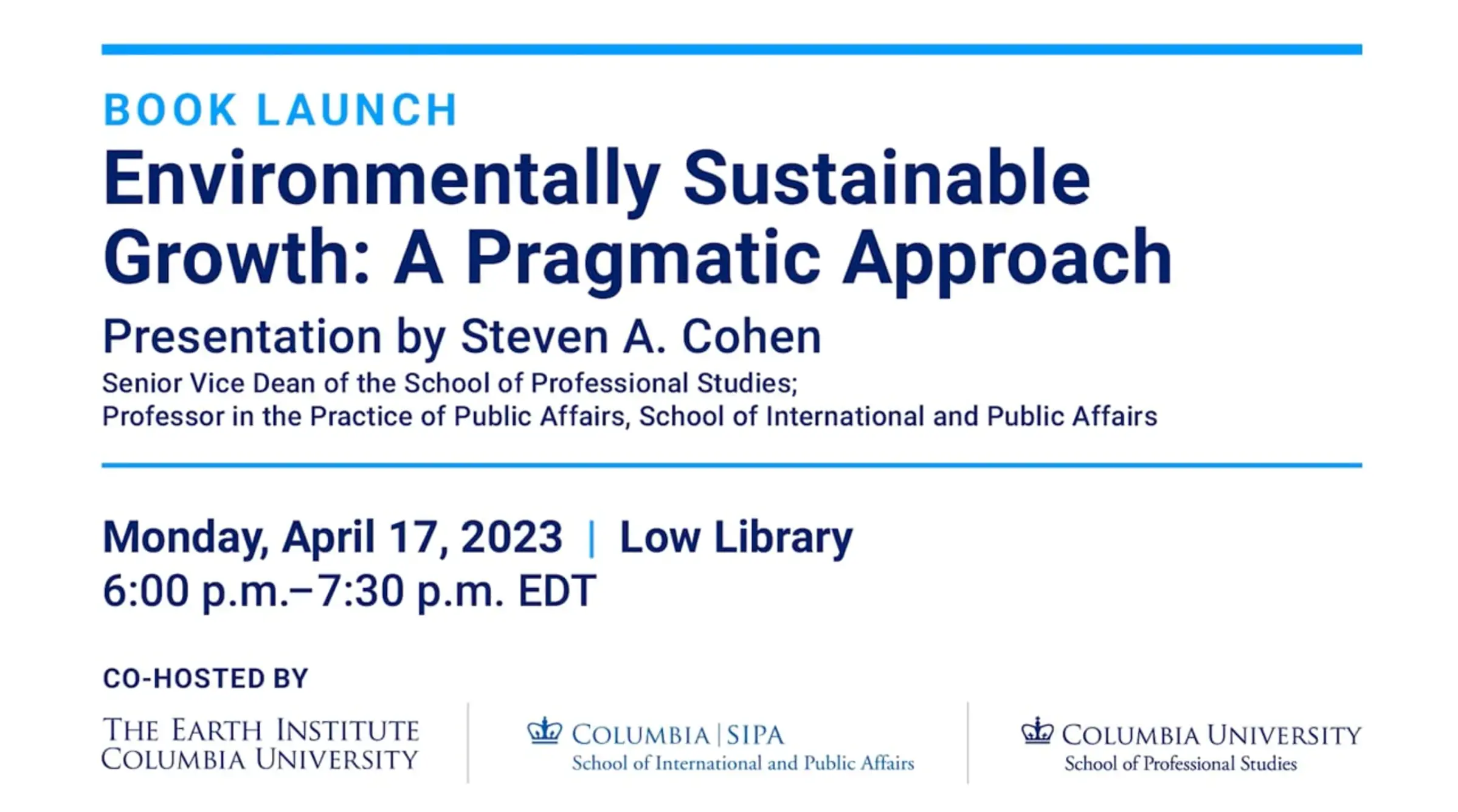Dr. Steven Cohen’s latest book, Environmentally Sustainable Growth: A Pragmatic Approach, was introduced at an event at the Low Library. Dr. Cohen is the Senior Vice Dean of the School of Professional Studies and Professor in the Practice of Public Affairs at the School of International and Public Affairs. He was interviewed by Louise Rosen, Senior Associate Dean of Administrative Affairs at the School of Professional Studies. You may watch the interview recording below.
Dr. Cohen said the book was about pragmatic approaches to climate change, which can be adapted in the near future. Criticizing some of the current environmental activism, Dr. Cohen said that “So much of environmental politics is position-taking, symbolic nonsense, instead of finding what’s common so we can work on these problems and solve them.”
Using the initial environmentalist activist movement of the 1970s as an example of pragmatic climate politics, he explained that environmental protections were at one time agreed upon by both the Democratic and Republican parties. The Environmental Protection Agency, where Dr. Cohen has served as a policy advisor, was created in 1970 under the Nixon administration.
While there has been a commonly-held view that government regulations on businesses hurt the economy, Dr. Cohen said this doesn’t hold true for regulations that are meant to protect the environment. He argued instead that regulations actually encourage businesses to innovate. Just as the automobile regulations that were introduced in the 1970s forced automakers to make their cars with more safety features, environmental regulations can encourage businesses to find new ways to reduce pollution and their environmental footprint.
He noted, however, that there are sources of energy that seem to be pragmatic, but are not helpful in the long run. Take nuclear energy plants. For example: an essential aspect of pragmatic climate change policy is stability. “Look at what has happened in Ukraine; do we really want to have a nuclear power plant being bombed and melting down? ” said Dr. Cohen. The way that we can create stability moving forward, he added, is by “...recognizing the connection between economics, politics, and the environment.”
About the Program
The Columbia University M.S. in Sustainability Management provides students cutting-edge policy and management tools they can use to help public and private organizations and governments address environmental impacts and risks, pollution control, and remediation to achieve sustainability. The program is customized for working professionals and is offered as both a full- and part-time course of study.
The Sustainability Management application deadline for fall 2023 is May 15, 2023. Learn more here



